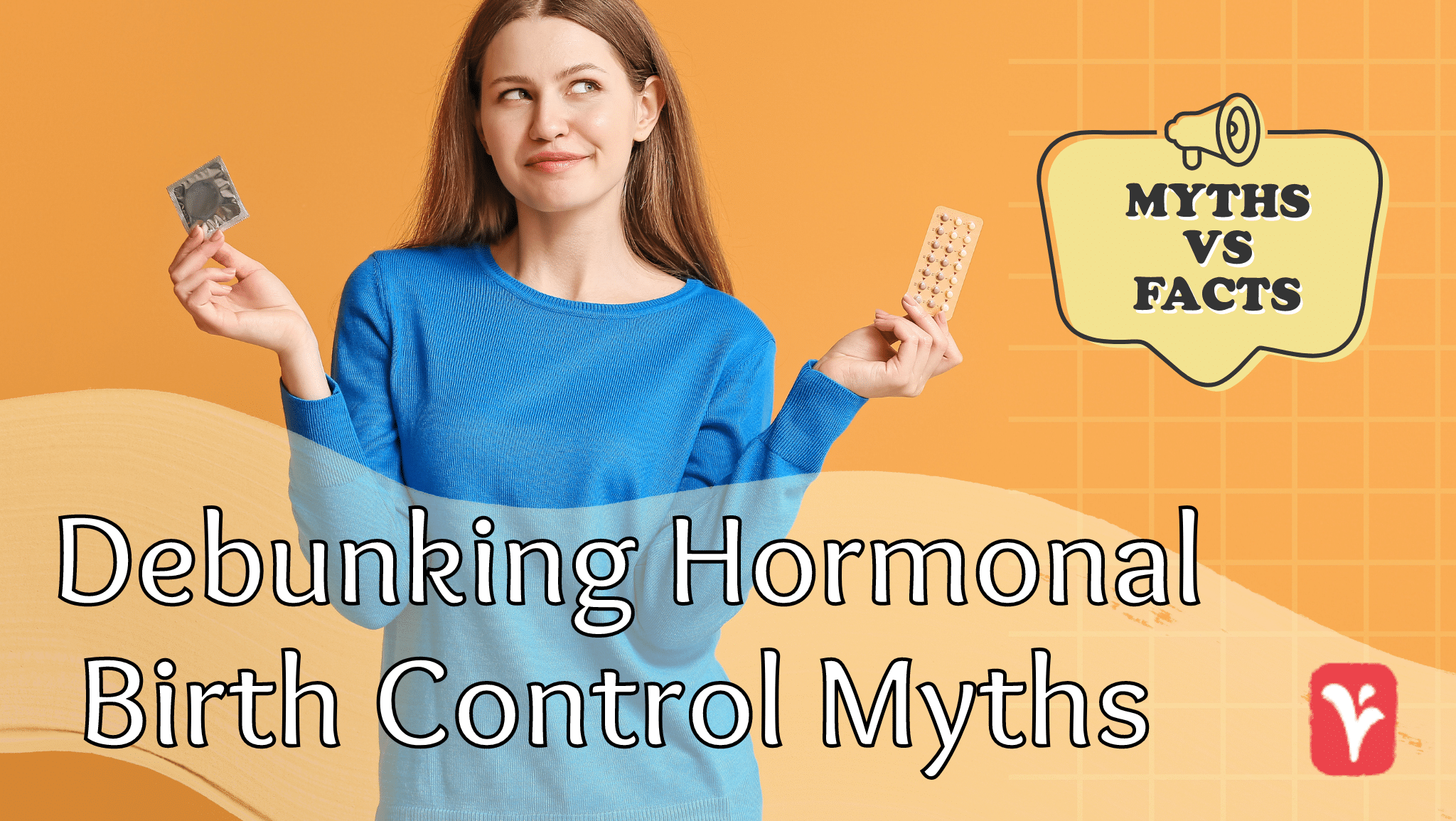Debunking Hormonal Birth Control Myths
The overwhelming majority, 90% of people with the capacity for pregnancy, have used contraception at some point in their lives. Many people have used more than one type. Hormonal contraceptives contain progestin and estrogen, or progestin only. Options for hormonal contraceptives include birth control pills, the implant, hormonal intrauterine devices (IUDs), the shot, vaginal rings, and the birth control patch.
Spurred in part by political agenda, several myths about birth control are circulating on social media. It is essential that you have accurate facts to make an informed choice. It’s also key to get your information from qualified experts. Though influencers on social media may position themselves as qualified, checking their credentials beforehand helps to differentiate someone with a medical degree versus someone who might be speaking from their own experience, or with a religious, financial, or political motive.
RELATED: What Birth Control Is Best for Me?
At Austin Women’s Health Center, we offer several hormonal birth control options and are happy to help you make the best choice for your life, we are one of the best birth control clinics in the Central Texas region, so you can trust us with your care. We accept most major insurances for birth control coverage. We also have reasonable uninsured rates, and funding options available for birth control. The decision to start or come off of hormonal birth control is highly individual. It’s important to know the facts beforehand, so you can make the most informed decision for you. Contact us today to speak to one of our caring staff members or schedule now. Below, you’ll find corrections to a few of the hormonal birth control myths floating around.
Birth Control Leads to Infertility
The first myth to debunk is that birth control leads to infertility. Hormonal birth control works in one of three ways:
– By stopping or lessening ovulation, or when the ovary releases an egg
– By thickening cervical mucus, which helps prevent sperm from entering the uterus
– By thinning the uterine lining so that a fertilized egg is less likely to implant
You can get pregnant as soon as you stop taking the birth control pill, or have your IUD or implant removed. The only exception is the Depo-Provera shot; it could take around 12 months for fertility to return after your last shot.
Hormonal birth control use now does not impact your ability to become pregnant in the future. In fact, many people who have used hormonal contraception at one point will have healthy pregnancies in the future. While a variety of factors can cause infertility, or the inability to become pregnant after trying for at least a year of unprotected sex, birth control is not one of them.
Birth Control Causes Cancer
The link between hormonal birth control and cancers is one that requires a more thorough explanation than simply sounding the alarm that birth control increases your risk. While birth control does increase the risk of breast and cervical cancer, it’s to a very slight degree.
When learning about the link between birth control and cancer, it’s also significant to underscore that birth control decreases the risk of ovarian cancer, which is often difficult to treat, as well as endometrial and colorectal cancer. The relationship between birth control’s potential to decrease certain risks of cancers is greater than its risk of causing cancer.
Birth Control Causes Depression
While hormonal birth control is associated with depression as a symptom, there is no research that definitively links the two. One recent study found that hormonal birth control is not a direct cause of depression. Possible explanations for the association between the two is that those who take birth control are of reproductive age—the incidence of depression may be greater, and women are twice as likely than men to have depression.
One 2022 study published in Frontiers in Psychiatry found that out of 3,320 college-age students, those taking hormonal birth control had lower scores of depression than those not taking hormonal birth control. For some people, the knowledge that they are taking an effective method to reduce their risk of unintended pregnancy can help alleviate anxiety.
The Only Reason People Take Birth Control is for Pregnancy Prevention
People use hormonal birth control methods for a variety of reasons. Many people may take hormonal birth control for its positive impact on painful and heavy periods, as it can alleviate period symptoms such as headaches and cramping. For some people with heavy periods, birth control can reduce anemia. People might also opt for hormonal birth control to reduce their risk of certain types of cancer, especially if that type of cancer runs in their family.
Others take birth control to help with acne. Hormonal birth control is a common treatment for polycystic ovary syndrome (PCOS) symptoms, which can create an irregular cycle.
You Need a Cleanse From Birth Control
It’s also a myth that you need to detox from birth control methods. Usually, this myth is driven by supplement companies to create a concern that you need to take their products. As soon as you stop taking it, the birth control pill leaves your system within 48 hours. A cleanse for fertility or any other purpose after birth control is not necessary.
RELATED: Finding the Best Birth Control Options for You
Ultimately, the symptoms that birth control can cause are different from person to person. If you experience any unfavorable side effects, it can be helpful to chat with your provider, who can help you find a better method.
